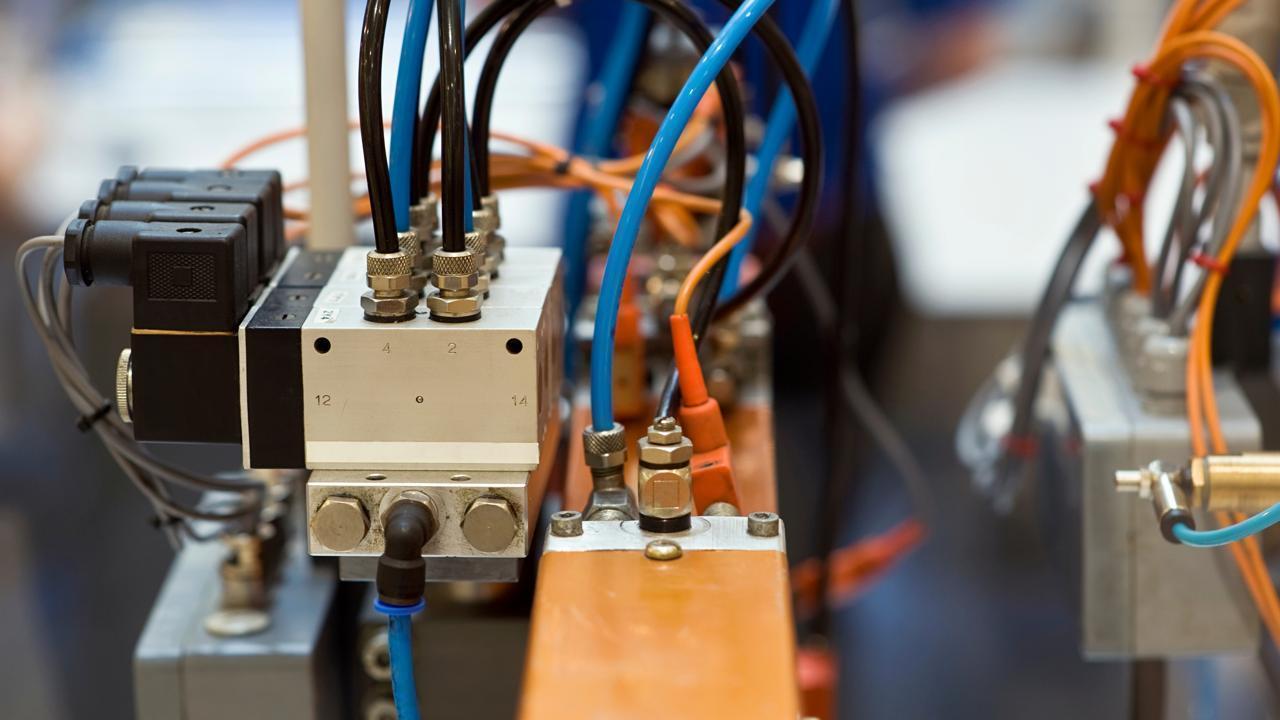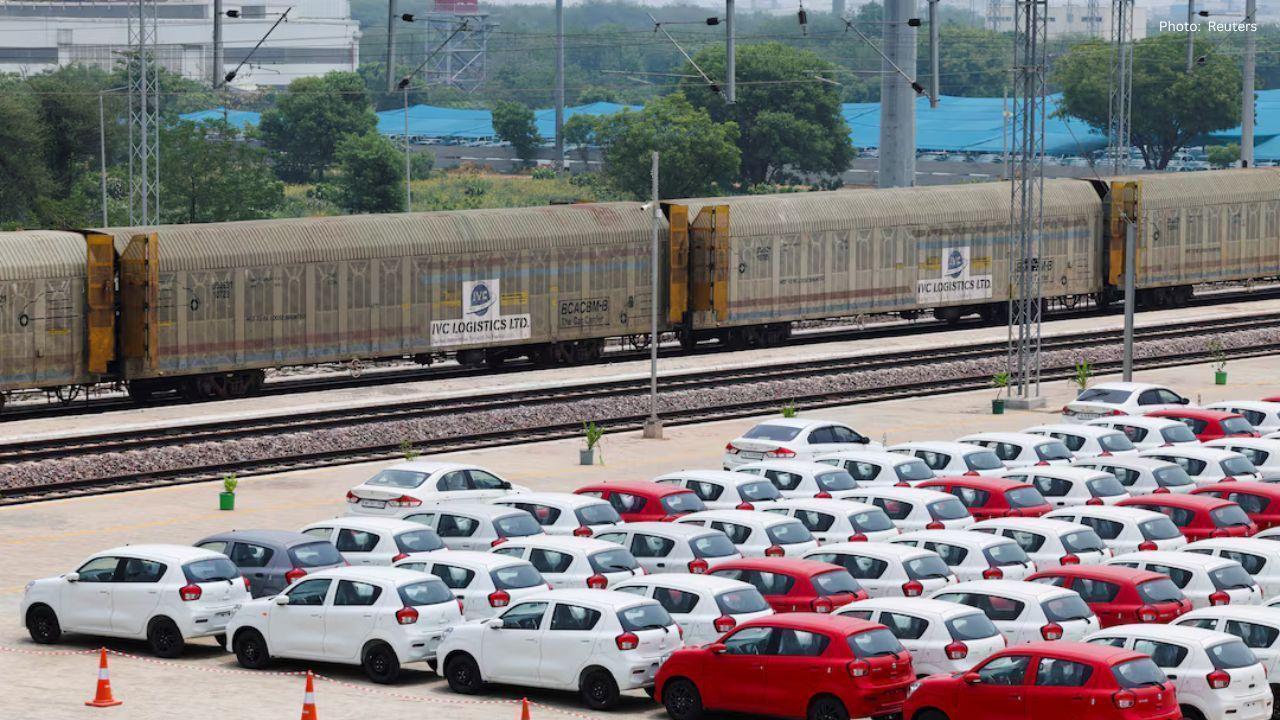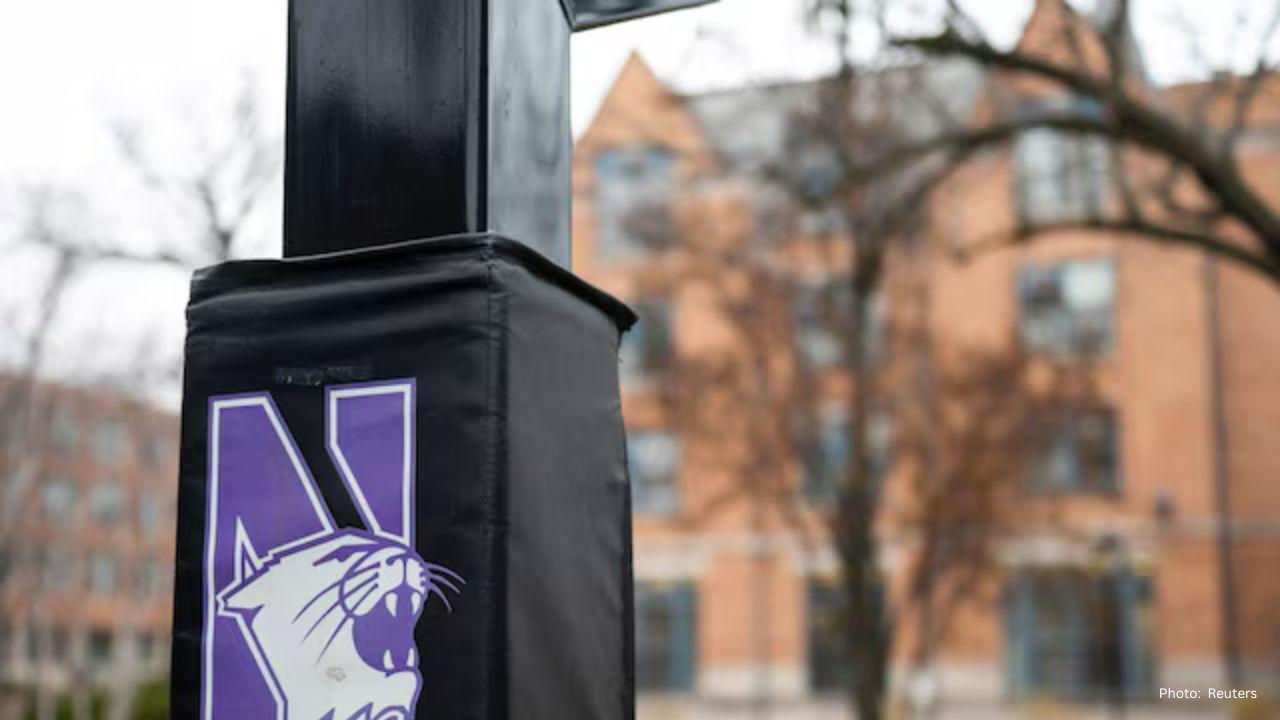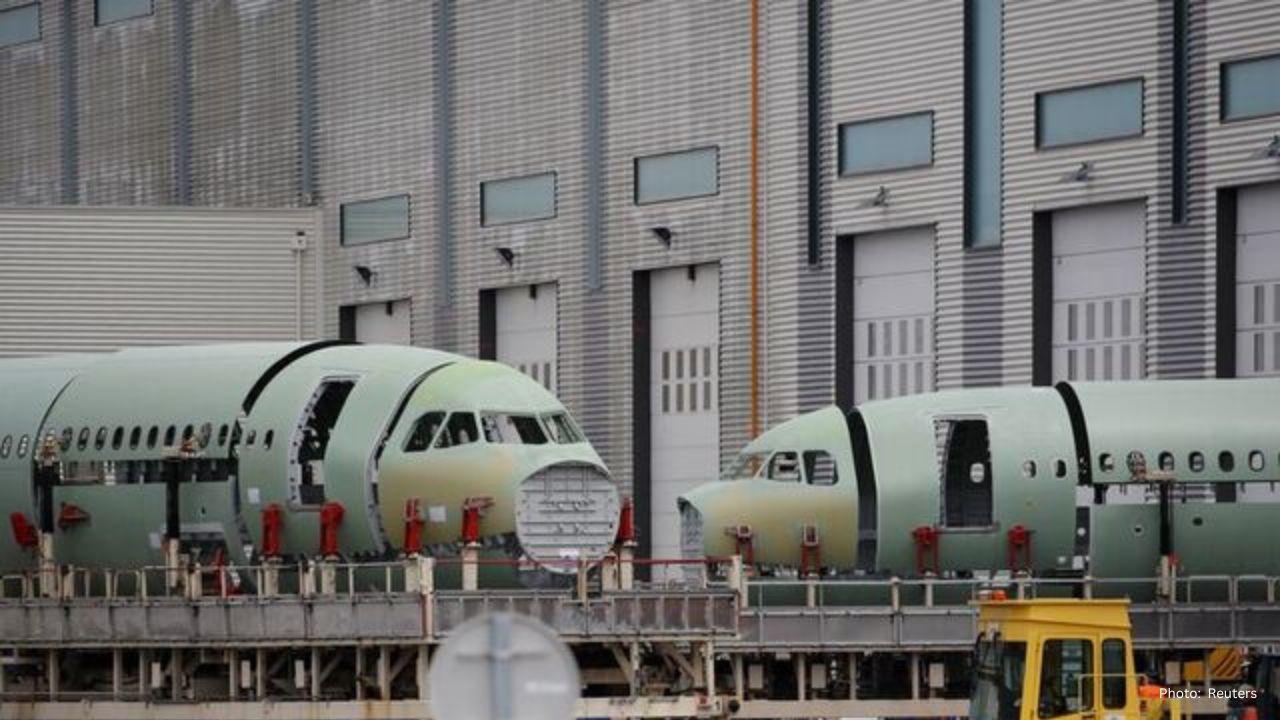
Post by : Amit
A Bold Step Toward Electrified Mobility Across France
Amphenol Industrial has clinched a €48 million contract to supply its advanced liquid-cooled DC cable connectors to France’s national EV charging initiative. Announced on July 20, 2025, the project is being spearheaded by Vinci Autoroutes and energy giant Engie, with plans to install 1,200 High Power Charging (HPC) stations along France’s expansive autoroute network by the end of 2027.
The deal positions Amphenol not only as a technology provider but as a key enabler of long-distance electric mobility in one of Europe’s most visited and vehicle-dependent nations. With EV sales in France projected to exceed 1.2 million units annually by 2026, the need for reliable, high-performance charging infrastructure has never been more urgent.
A €48 Million Vote of Confidence in Industrial Engineering
The award of the €48 million contract follows a competitive bidding process where multiple cable and connector manufacturers vied to become the backbone of this monumental charging rollout. Amphenol’s proposal stood out for several reasons, most notably its Helio-Flex locking system and field-swappable connector heads—two features that reduce installation complexity and future-proof maintenance operations.
According to project documents reviewed by the French Ministry of Ecological Transition, Amphenol’s connectors will be deployed in multiple charging zones, including high-traffic rest stops, remote toll plazas, and urban fringe locations. The scope of the project also includes extensive testing under peak load conditions and thermal stress environments, something Amphenol’s engineering teams have been preparing for over the past year through accelerated environmental qualification trials.
Tech That Thrives in Southern Europe’s Heat
One of the major technical hurdles for EV charging systems—especially in southern Europe—is coping with ambient heat and the internal thermal buildup during fast charging. Amphenol’s liquid-cooled connectors are engineered to handle these demands. Capable of withstanding ambient temperatures up to 65°C, the system ensures optimal performance even under direct sunlight and heavy usage. This is particularly important for France’s southern autoroutes, where summer temperatures regularly soar past 40°C.
The secret lies in Amphenol’s closed-loop liquid cooling architecture, which circulates coolant around the high-voltage cables and contact surfaces, keeping both the connector and the charging socket below critical thresholds. This not only prevents derating of power delivery—ensuring 350kW speeds are maintained—but also extends the lifespan of the connector components, reducing the frequency of replacement.
Helio-Flex Locking: Designed for Durability and Safety
Another standout innovation is the Helio-Flex locking mechanism, which allows users to securely engage the connector with minimal force while ensuring resistance to over 5,000 mating cycles. In contrast to older connector designs prone to wear and physical distortion over time, Helio-Flex technology incorporates a twist-and-lock motion with self-aligning pins and a reinforced housing that prevents torque damage.
This design feature is not just an engineering perk—it’s a safety imperative. In high-power charging systems, improper mating or micro-misalignment can lead to dangerous arcing and thermal hotspots. The Helio-Flex ensures perfect alignment every time, even when operated by non-specialists or in harsh conditions. The locking system also includes haptic feedback and an LED status indicator to confirm full engagement, enhancing the user experience.
Field-Swappable Heads to Cut Maintenance Costs
A critical concern for charging infrastructure operators is minimizing the cost and time of maintenance. With connectors subjected to daily use in high-traffic environments, wear-and-tear is inevitable. Amphenol has tackled this with a modular approach—the connector heads are fully field-swappable. That means when a plug becomes damaged or degraded, technicians can replace just the head without uninstalling or rewiring the entire unit.
This plug-and-play capability significantly lowers long-term operational expenditure (OPEX). Vinci Autoroutes estimates that connector head replacements can now be done in under 15 minutes, versus the standard 2–3 hour service windows seen in previous models. This is expected to be particularly valuable on remote stretches of the autoroute, where service teams face long travel times and minimal logistical support.
Vinci and Engie: Building a Truly National HPC Grid
The partnership between Vinci Autoroutes and Engie is one of the largest public-private collaborations for EV infrastructure in Western Europe. The two companies aim to blanket the French highway system with ultra-fast chargers that can deliver 350kW per port—enabling a 400-kilometer EV recharge in under 20 minutes.
Amphenol’s connectors will be key to achieving those specs. The 1,200 HPC stations are being constructed with modular clusters of 4–8 chargers each, with a focus on interoperability and support for both CCS and future MCS (Megawatt Charging System) standards. While this current rollout focuses on passenger EVs, Engie is preparing to extend similar infrastructure for electric freight vehicles and hydrogen-electric hybrids within the next two years.
The HPC grid is designed with smart energy balancing, including solar canopies, stationary battery storage, and demand-based power modulation—making it one of the most technologically integrated charging networks in Europe.
Environmental Compliance and Lifecycle Assurance
Amphenol has long been known for its industrial compliance across global standards, and the Helio-Flex DC connectors are no exception. All connectors in the project are fully compliant with IEC 62196-3 and ISO 17409, meeting both EU electrical safety and thermal management benchmarks.
The materials used are also RoHS and REACH compliant, featuring halogen-free insulation and corrosion-resistant aluminum housings. With a rated operational life exceeding 10 years under heavy-duty use, these connectors will form the foundation of a sustainable, low-maintenance charging grid that France can rely on through its energy transition era.
Additionally, the connectors are designed for recyclability. End-of-life connector modules can be returned to Amphenol collection centers for responsible disassembly and reuse—aligning with France’s new Circular Economy Directive that takes effect in 2026.
Implications for EV Adoption and Policy Goals
This project arrives at a critical juncture in France’s mobility policy. The national target to ban internal combustion engine (ICE) vehicle sales by 2035 requires an infrastructure ecosystem that supports long-distance EV travel with zero compromises. Consumer hesitation around EV range anxiety—especially for rural and intercity routes—remains a barrier to adoption. By guaranteeing fast, reliable charging every 50 kilometers on France’s busiest autoroutes, this program removes one of the last major roadblocks to EV adoption at scale.
Amphenol’s involvement also aligns with the EU’s broader “Fit for 55” package, which mandates a 55% reduction in greenhouse gas emissions by 2030. Electrification of transport is a cornerstone of this plan, and charging hardware that can scale while remaining cost-efficient is pivotal to success.
Industry Reactions and Expert Voices
Industry analysts are already calling this one of the most significant EV infrastructure contracts awarded in Europe this year. “France’s autoroutes are not just national—they are continental corridors. What Amphenol provides here is the electrical nervous system of Europe’s future highway mobility,” said Léa Ferrand, infrastructure strategist at EV Insights Paris.
Jean-Michel Bergeron, senior systems engineer at Engie E-Mobility, noted, “We tested multiple suppliers, but Amphenol’s connectors scored highest in terms of thermal performance, mechanical resilience, and field reparability. It’s not just about making fast charging possible—it’s about making it operationally sustainable.”
A Scalable Platform for Continental Expansion
While the current contract is focused on France, the implications are continent-wide. As the EU pushes for harmonized standards and cross-border EV charging access, Amphenol’s technology could soon be a common sight across Belgium, Spain, Germany, and Italy. Vinci Autoroutes already operates toll roads in multiple European countries and could replicate this model beyond France, leveraging the same components, designs, and vendor relationships.
Amphenol, meanwhile, has hinted at further innovation. The company is exploring AI-integrated connector heads capable of self-diagnosing heat, wear, and conductivity anomalies in real time. These smart connectors could form the bedrock of predictive maintenance systems for national grids—ensuring uptime before outages ever occur.
Engineering the Future of Long-Distance EV Travel
The electrification of highways is no longer a distant vision—it’s rapidly becoming reality. Amphenol’s €48 million contract marks more than just a business win; it signals the arrival of rugged, field-ready technology designed to make EV travel effortless and fast across long distances.
With advanced thermal resilience, plug-and-play maintenance, and a focus on safety and sustainability, the Helio-Flex connector system is a core enabler of France’s—and possibly Europe’s—EV charging future. As construction ramps up through 2026, travelers on French autoroutes can expect a new era of mobility—quiet, clean, and always powered up.
Amphenol, France, EV, Highways, HPC Connectors










Advances in Aerospace Technology and Commercial Aviation Recovery
Insights into breakthrough aerospace technologies and commercial aviation’s recovery amid 2025 chall

Defense Modernization and Strategic Spending Trends
Explore key trends in global defense modernization and strategic military spending shaping 2025 secu

Tens of Thousands Protest in Serbia on Anniversary of Deadly Roof Collapse
Tens of thousands in Novi Sad mark a year since a deadly station roof collapse that killed 16, prote

Canada PM Carney Apologizes to Trump Over Controversial Reagan Anti-Tariff Ad
Canadian PM Mark Carney apologized to President Trump over an Ontario anti-tariff ad quoting Reagan,

The ad that stirred a hornets nest, and made Canadian PM Carney say sorry to Trump
Canadian PM Mark Carney apologizes to US President Trump after a tariff-related ad causes diplomatic

Bengaluru-Mumbai Superfast Train Approved After 30-Year Wait
Railways approves new superfast train connecting Bengaluru and Mumbai, ending a 30-year demand, easi